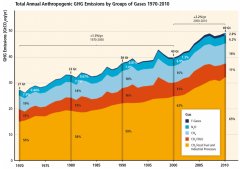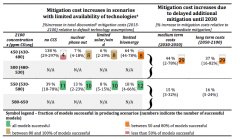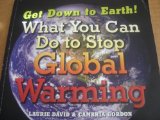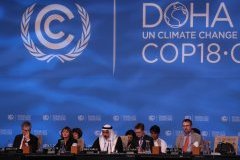Why should we stop global warming?
 Global warming is here, it's man-made, and it will cause serious problems in the years ahead. What's more, humanity has daillied so long that avoiding the worst impacts will now require extremely sharp emissions cuts — and possibly taking carbon out of the air.
Global warming is here, it's man-made, and it will cause serious problems in the years ahead. What's more, humanity has daillied so long that avoiding the worst impacts will now require extremely sharp emissions cuts — and possibly taking carbon out of the air.
Avoiding drastic warming may mean zeroing out fossil-fuel emissions by 2100
That's the upshot of a major new synthesis report from the UN's Intergovernmental Panel on Climate Change (IPCC). It provides a helpful summary of the panel's previous three big reports on global warming, which dealt with: 1) the physical science of climate change, 2) how bad it could get, and 3) how to stop it.
The new report includes a review of the evidence that carbon dioxide from burning coal, gas, and oil is heating the planet. It notes that some amount of "irreversible" climate disruption is already locked in, but things can also get much, much worse. Additional global warming could wreak havoc across the globe, potentially leading to food shortages, the flooding of major cities, and mass extinctions.
It notes that some amount of "irreversible" climate disruption is already locked in, but things can also get much, much worse. Additional global warming could wreak havoc across the globe, potentially leading to food shortages, the flooding of major cities, and mass extinctions.
Perhaps the most relevant sections are about how to avoid this fate, something the world's nations will be discussing over the next year of UN climate talks. To avoid the worst outcomes, the world would need to act immediately and drastically, reducing emissions 41 to 72 percent below 2010 levels by mid-century. We'd then need to keep cutting and possibly be taking carbon-dioxide back out of the atmosphere by 2100.
That won't be easy. And the task gets all the harder if countries delay action or if they rule out certain controversial technologies, like nuclear power or carbon capture for coal plants. Here are seven key points from the report:
 1) Right now, the world is failing badly at its climate goals
1) Right now, the world is failing badly at its climate goals
Total anthropogenic greenhouse gas emissions. (IPCC)
The world's nations have pledged to prevent global average temperatures from rising more than 2° Celsius (or 3.6° Fahrenheit) above pre-industrial levels. If we go too far above that, the worry goes, we dramatically increase the risks of things like rapid sea-level rise or mass extinctions or severe damage to our farms and crops.
 Even if nations follow through on their climate pledges, we're still on pace for 3°C of global warming
Even if nations follow through on their climate pledges, we're still on pace for 3°C of global warming
Trouble is, on our current course, it's unlikely that we'll meet that goal. Global average temperatures have already risen 0.85°C since the 19th century, as humans have burned fossil fuels and cleared forests and put more heat-trapping greenhouse gases in the atmosphere. And, the IPCC notes, yearly greenhouse-gas emissions continue to rise fast (see chart).
If emissions keep rising, we're likely on pace for between 3.7°C and 4.8°C rise in average temperatures by the end of the century. The World Bank, for one, thinks that would be a total disaster — because "there is no certainty that adaptation to a 4°C world is possible.".
Now, countries like Europe and the United States, have made various pledges to cut their emissions in recent years. But even if those pledges pan out, the IPCC estimates, the world would still be on pace for roughly 3°C of global warming by the end of the century. (There's a range of possible outcomes, but that's the central estimate.)


|
Global Warming: A complete Guide to Understanding Global Warming, How Global Warming Affects Us, and What You Can Do to Stop It! (Global Warming, Climate Shift, Recycle Book 1) eBooks |

|
Get Down to Earth! What You Can Do to Stop Global Warming Book (Scholastic)
|

